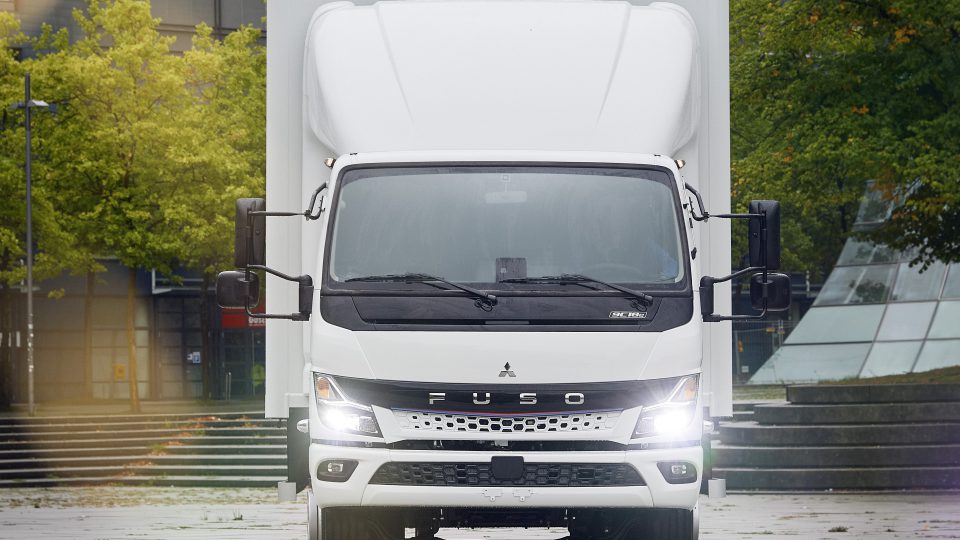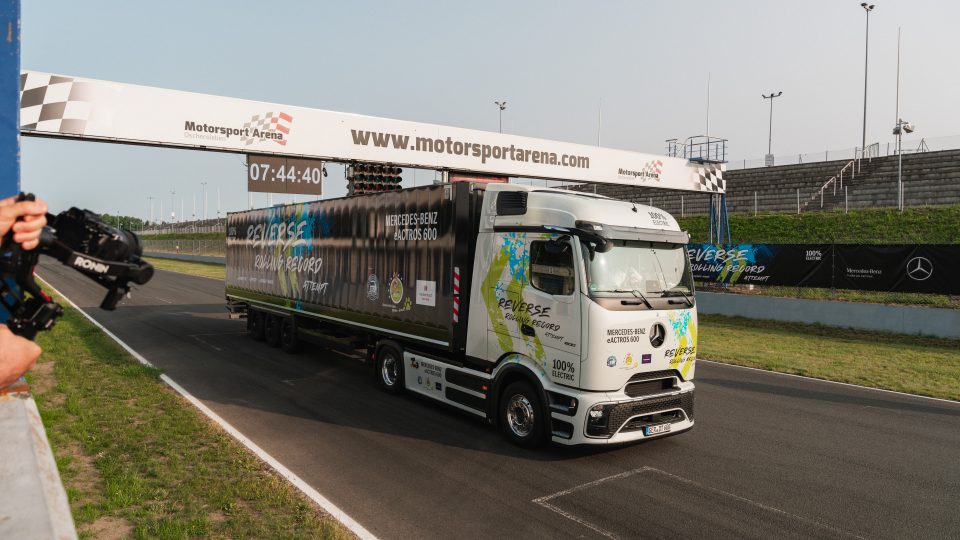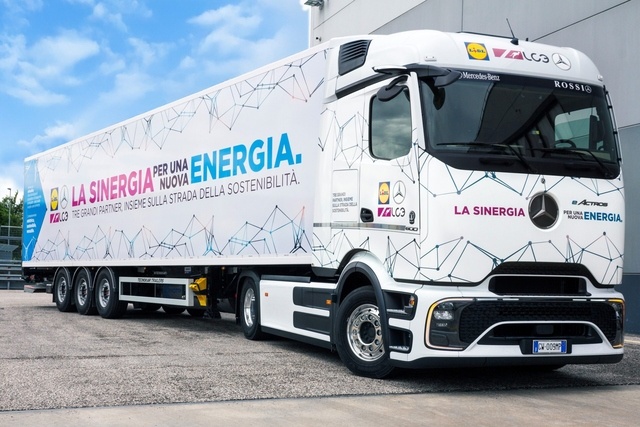Daimler Truck increased its revenue by 10% in 2021. Electrification plans confirmed
With 455,400 units, 20% more trucks and buses have been sold worldwide in 2021 compared to prior-year level (378,300 units). The company gained advantage from a recovery in its most important markets, especially in the first half of 2021. «Despite headwinds due to COVID-19 and supply chain shortages we achieved our financial targets», said Chairman Martin Daum.
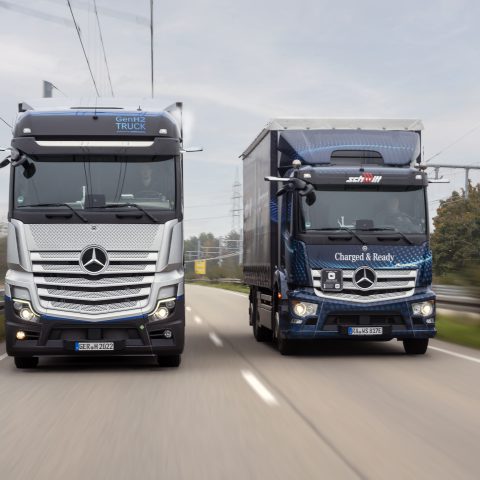
Daimler Truck increased its revenue by 10% in 2021 compared to 2020. That’s what the global group communicated during an online press conference held on March 24, the first since the spin-off from the car and van segment, now named Mercedes-Benz Group AG. Of course, the quite positive figures recorded in 2021 (compared to 2020, which was a very tricky year, considering the pandemic outbursts all over the world) are affected by the uncertainties coming from the ongoing semiconductor shortage on a global level, the evolution of the pandemic, as well as the consequences of the Russian invasion of Ukraine, which started exactly one month ago.
In these dramatic weeks, our thoughts are with the people in Ukraine and we hope that this war will end soon. Shortly after the war began, we decided to completely suspend our business in Russia until further notice. At the same time, we are supporting charitable organisations in their Ukraine aid efforts as well as numerous private initiatives by our employees, for which I would like to express my gratitude
Martin Daum, Chairman of the Board of Management of Daimler Truck
The ongoing electrification strategy
Before focusing our attention on the figures given by Daimler Truck, let’s talk about some hints regarding the ongoing electrification strategy communicated by Daimler Truck during a dedicated event held last Autumn in Germany. The Q&A sessions of today’s online press conference saw several questions related to alternative tractions, as Daimler Truck will see the advent of the eEconic this year, following the start of serial production of the eActros in 2021. CEO Martin Daum confirmed that the path towards electrification will not be affected by the current international issues. He did not release any figure on orders and sales achieved so far, but said that Daimler wants to «at least triple» the number of electric vehicles (including buses) sold in 2022 compared to 2021. Furthermore, the company’s focus is also on hydrogen development, with the cellcentric project and above all the H2 truck, whose serial production is scheduled in 2027.
Back to the figures, last year Daimler Truck benefitted from an overall economic recovery in the most important commercial vehicle sales markets in the financial year 2021 and significantly increased its unit sales, revenue and net profit. With 455,400 units, 20% more trucks and buses have been sold worldwide in 2021 compared to prior-year level (378,300 units). The company gained advantage from a recovery in its most important markets, especially in the first half of 2021. While demand remained strong across core markets during the second half, supply constraints slowed production and limited volume growth especially for heavy duty vehicles in North America and Europe.
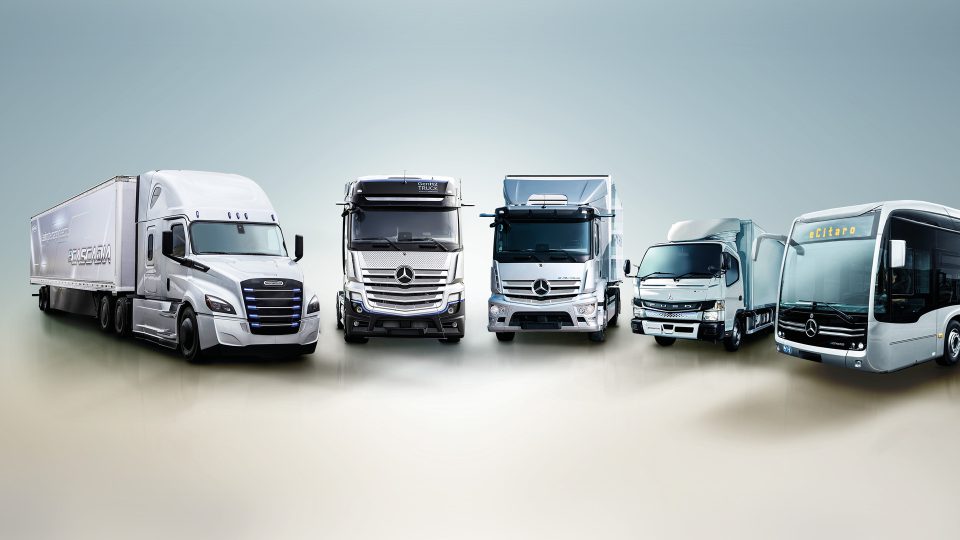
Daimler Truck 2021 revenue to €39,8 billion
Last year, the company’s revenue increased to €39,8 billion in 2021 (+ 10% compared to previous year: €36,0 billion).Supported by a very strong demand environment and driven by all segments Daimler Truck’s incoming orders for 2021 in the industrial business have mounted to 590,000 units, a plus of 37% compared to prior year (430,500 units). Even more important, 2021 also showed a favorable development for earnings and Return on Sales (RoS) driven by strong sales, an improved net pricing and cost reduction measures. The adjusted EBIT (earnings before interests and taxes) significantly rose to € 2,552 million (previous year: € 657 million).
Daimler Truck currently assumes that the economic conditions in our most important markets continue to normalize and that neither the COVID-19 pandemic nor the war in Ukraine will have a negative impact on the general market development. Despite a strong demand, bottlenecks in the semiconductor industry and ongoing supply constraints will continue to impact sales mainly in the first half. For its industrial business Daimler Truck anticipates an increase in unit sales to a range between 500,000 and 520,000 units in 2022. The company expects a significant increase in its revenue on group level in 2022 to a range between € 45.5 and € 47.5 billion.
Statements from top management
«When looking back at the past year from a business perspective I can clearly say: 2021 was an extraordinary year for Daimler Truck and I am very proud of what our global team got accomplished», said Martin Daum, Chairman of the Board of Management of Daimler Truck. «Despite headwinds due to COVID-19 and supply chain shortages we achieved our financial targets. On top of that, our spin-off from Mercedes-Benz Group AG was a historic step that we managed very successfully. Since this week we are a proud new member of the stock market index DAX. Looking at 2022, we will focus on the factors we have in our own hands to further unlock our profit potential and lead sustainable transportation».
«In 2021 we improved our profitability significantly. This was driven by increased sales volumes and an improved used and aftersales business, while higher raw material costs and supply chain constraints had negative effects. Replacing COVID- 19 driven one time cost effects with structural improvement in 2021 was also a major achievement. Going forward, we remain fully committed to the profitability ambitions we’ve set for 2025 and we continue to intensively work on all strategic levers to achieve them», added Jochen Goetz, CFO of Daimler Truck.










